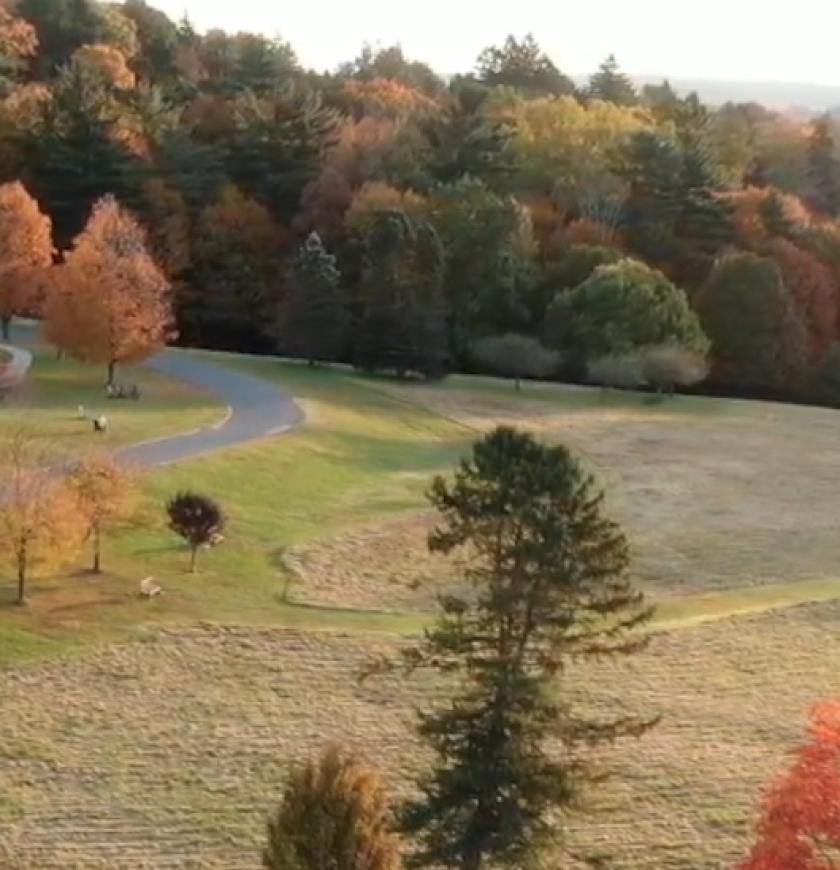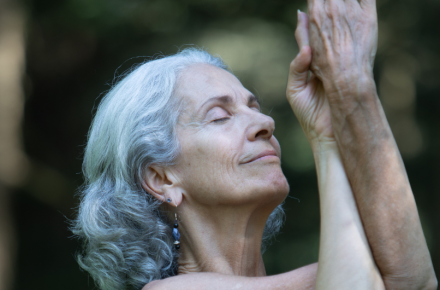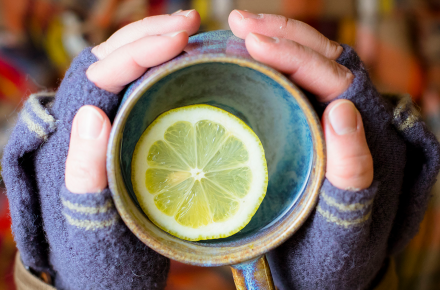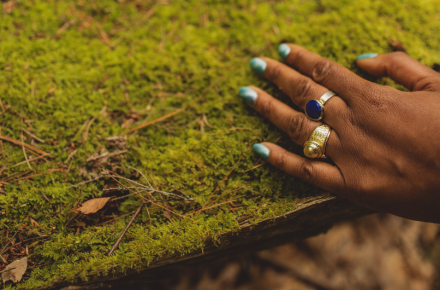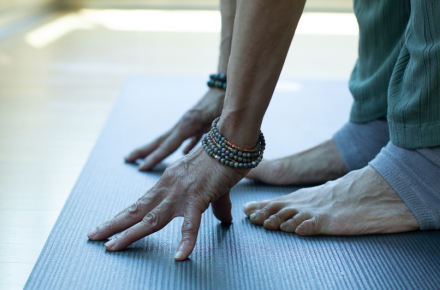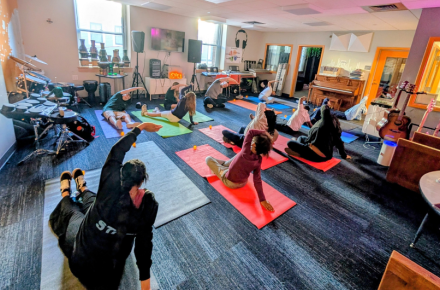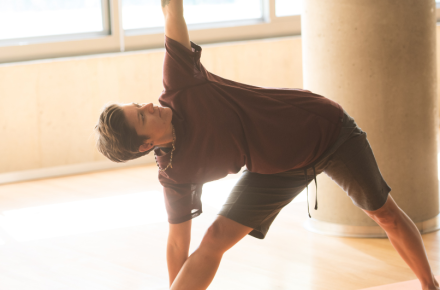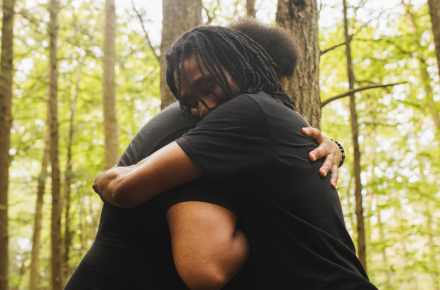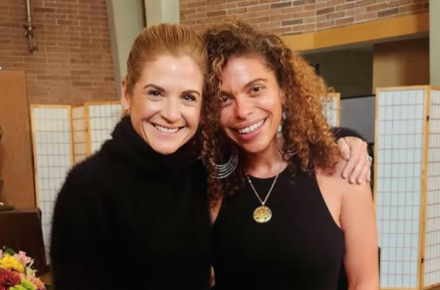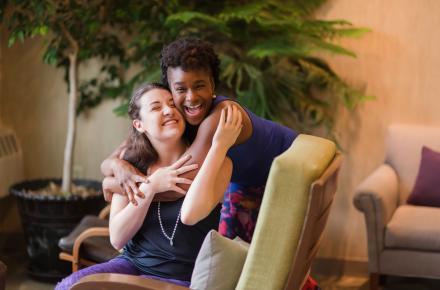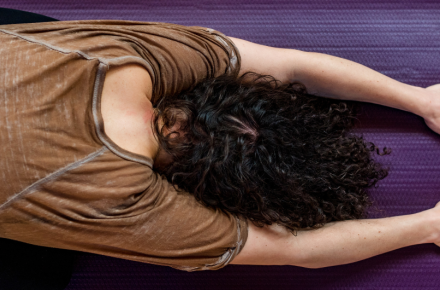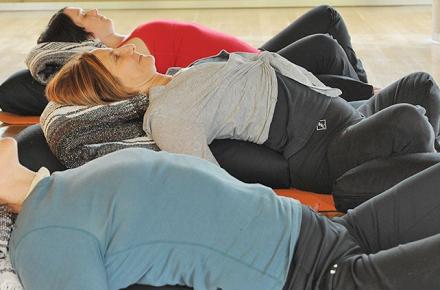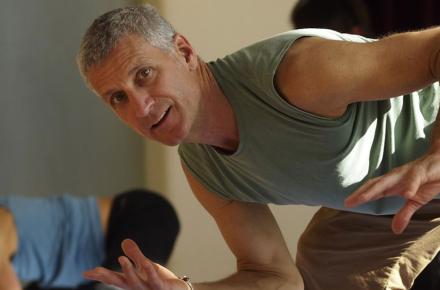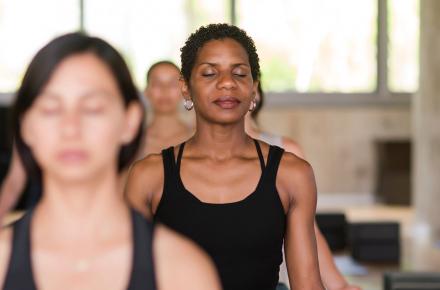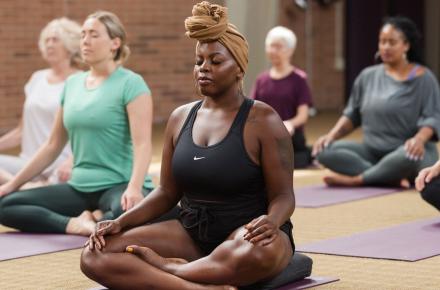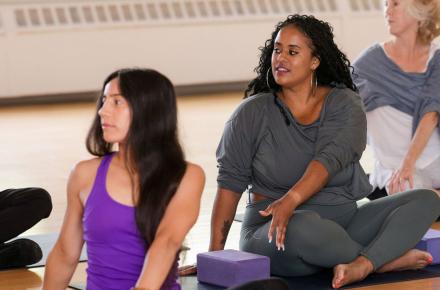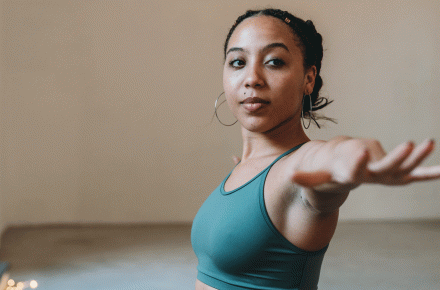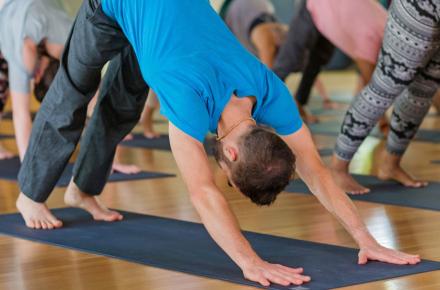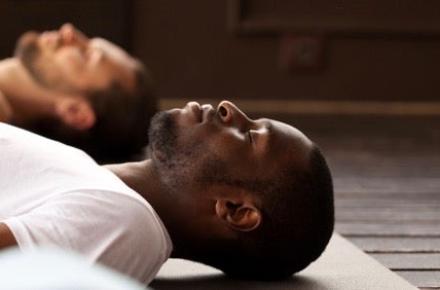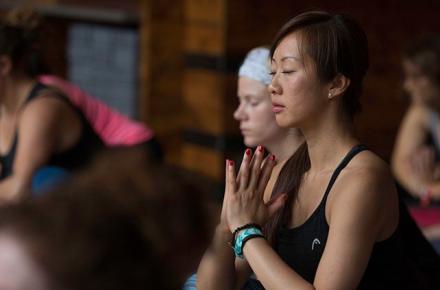The Yoga of Divorce
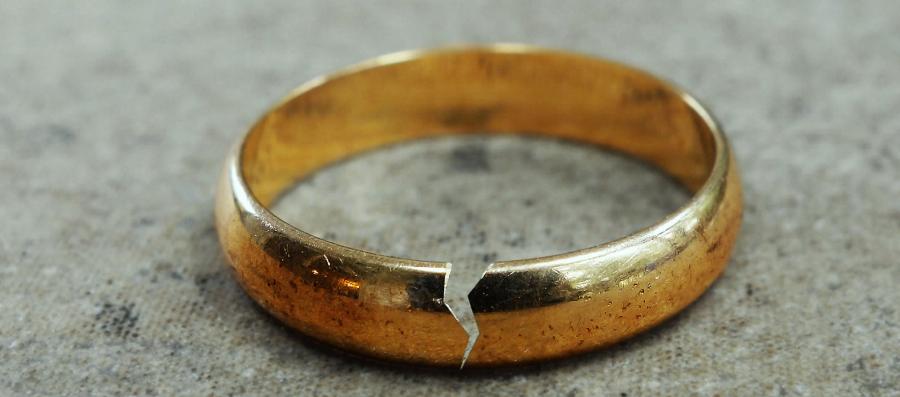
by Julie Bolitho
In 2014, after eight years of marriage, my husband and I called it quits. Our marriage had devolved into a relationship more akin to that of great roommates, and to my utter horror, I had fallen in love with someone else. When I told him about my feelings, to everyone’s surprise, he seemed relieved. For some time, we had both known the marriage was over, though neither of us had wanted to believe it or say it—for fear, for hurt, for shame.
In the early months of our disengagement, when walking our dogs together, he said to me, “It’s like we started out together, but you’ve grown so much, so rapidly the last few years that I couldn’t keep up.” There was winter light pushing through the trees behind him. I watched his thick black hair blow in the breeze.
Was my yoga training really to blame for the downfall of my marriage?
Yes and no.
Once, in my yoga teacher training, a student asked our instructor about his wife and he said, “Oh, I’m divorced.” Her cheeks flared, and she muttered an apology. He replied, “That’s not what you say when someone tells you they’re divorced! You say, ‘Congratulations!’” The room erupted in laughter. I felt both delighted and unnerved.
When my husband and I first separated, I thought I would have to move, not just for logistical reasons (as we owned a home together), but because I couldn’t believe my yoga clients would ever forgive me for failing in such an egregious way. Translation: I could not forgive myself, so how could I expect forgiveness from anyone else? I felt like an utter fraud on my mat. The year of my divorce, I could not balance to save my life. Tree pose was stupidly difficult. I fell out of Dancer every time. Inversions existed in a no-fly zone. My personal life was crumbling all around me, so how could I expect my body to find footing? I continued to encourage compassion and self-love in my clients, and yet, I loathed myself for my part in the marital destruction.
However, I also experienced my practice entirely differently that year. I landed in my body with a loud thud each time I came to the mat. I breathed into the depths of my lungs. And more than ever, when I offered the closing metta meditation, I felt each word resonate in my bones, and seemingly, across the universe.
May I be happy. May I always feel safe. May I be free.
May you be happy. May you always feel safe. May you be free.
May all creatures be happy. May all creatures always feel safe. May all creatures be free.
My practice brought me home again and again—to the home of my body and the home of this earth (the only two we really have). And in dark moments, when I thought the world would be better off without me, I remembered the words of Kripalu Yoga teacher Jay Karlinski: “Just get on your mat and the rest will work itself out.” (The fact that each time I came to my mat at home, a menagerie of rescue dogs and cats piled onto it with me, also reminded me of what small good I did each day.)
Yet, was yoga to blame for this very thing it was helping me through? In part, yes. My yoga practice and my yoga training cracked me wide open. Yoga forced me to look into suffering and see grace. It forced me to engage with my feelings, my pent-up anger, my hidden stashes of sadness. It allowed me to come into myself—to come face to face with every insecurity and to nurture and celebrate every talent with love and kindness. It brought me home. It taught me not to hide, to bring everything into the light. It taught me to accept. And to tell the truth. Especially to myself.
I hid from my truth for a long time. So many of us do. In part, we’re encouraged to hide from the truth from very young ages. Death is often kept hidden. We’re not meant to air the family’s dirty laundry. Even our food is full of secrets: my parents hid the fact that I ate animals from me for years; when I finally found out, I cried (they laughed).
Then, there are smaller lies: age, weight, gray hairs, the pervasive “I’m fine.” It’s the last one that’s a killer, because we tell it to others and to ourselves. Is it any wonder that we shy away from larger personal truths: I’m lonely. I’m unhappy. I feel unsupported. I made a mistake. I made a huge mistake. I don’t know how to fix this. I don’t know if I want to fix this.
When we finally dig deep, we can find a righteously fetid mire. In my case, that mire included stories that family and Midwestern culture had taught me about marriage—that good people stay married, that divorce is a personal failing, that asking to be who you are is asking too much. I had to not only face these stories, but determine if they were my stories or someone else’s. And, more often than not, they were someone else’s—stories from people of different times, religions, and beliefs than my own.
I sat in a coffee shop for hours with a friend at the time of my separation; we were in similar positions in our marriages. We laughed, cried, drank too many oat-milk cappuccinos, and ultimately, found ourselves on opposite paths—today, she and her husband are happier than ever. It’s like the proverb about the guru giving oppositional advice to different devotees: If someone is going to fall into a ditch on their right, you say, “Go left! Go left!” If someone is going to fall into a ditch on their left, you say, “Go right! Go right!” No path is the same. No choice is right for everyone.
To believe that you are a bad person because of divorce is to punish yourself for a story that may not even be your own, and to discredit the grace that floods in with hardship. We so rarely know the depths of our own strength and resilience until forced to confront our worst fears.
The yogic teaching that have I struggled most with throughout my life appeared over and over again through the dissolution of my marriage: Surrender. Let go. My whole life, I had struggled to let go of friends, relationships, memories. I hauled boxes of memorabilia, including movie stubs from middle school, across the ocean with me when I moved. With divorce, I had to surrender. I had to let go of my husband, my marriage, the life I created. I had to let go of ingrained cultural beliefs, and beliefs about who I was as a person. I had to let go of being “good.” I had to let go of fears about what comes next. I had to let go of the belief that I don’t deserve a blissful, creative, joy-filled life. I had to let go, let go, let go.
Until my divorce, I could not understand the Hindu worship of Shiva, a god whose main purpose is to bring destruction. Now I understand that, when things fall apart, when the forest burns, when the autumn leaves fall, new life blooms. New opportunities arise. Growth occurs. The future arrives in all its new colors and incarnations.
There was a poem that also helped me through my divorce. It’s called “Flying and Falling” by Jack Gilbert. It begins,
Everyone forgets that Icarus also flew.
It’s the same when love comes to an end,
or the marriage fails …
After many more stanzas, he goes on to conclude, “I believe Icarus was not failing as he fell,/ but just coming to the end of his triumph.”
Divorce, in many ways, was more of a triumph for me than my marriage. Divorce, much like yoga, broke me apart. It forced me to confront myself. It bred in me a sense of fearlessness and acceptance for what comes. I am stronger for it. I am happier for it. My ex is happier for it, too. Like every story, ours ended, and then other stories began. The beauty is that our stories now are our own. We are living our truths. I am a divorced yoga teacher. I am a blessed being. I am grateful every day for the light and the breeze. I am grateful for all the teachings I received that brought me into myself and back out again.
Julie Bolitho is a Kripalu Yoga teacher from northern Michigan who currently resides in Oxfordshire, England. A Truman Scholar and a published poet and essayist, Julie is currently at work on a memoir. juliebolitho.com, sanctuarygrace.com
© Kripalu Center for Yoga & Health. All rights reserved. To request permission to reprint, please email editor@kripalu.org.


